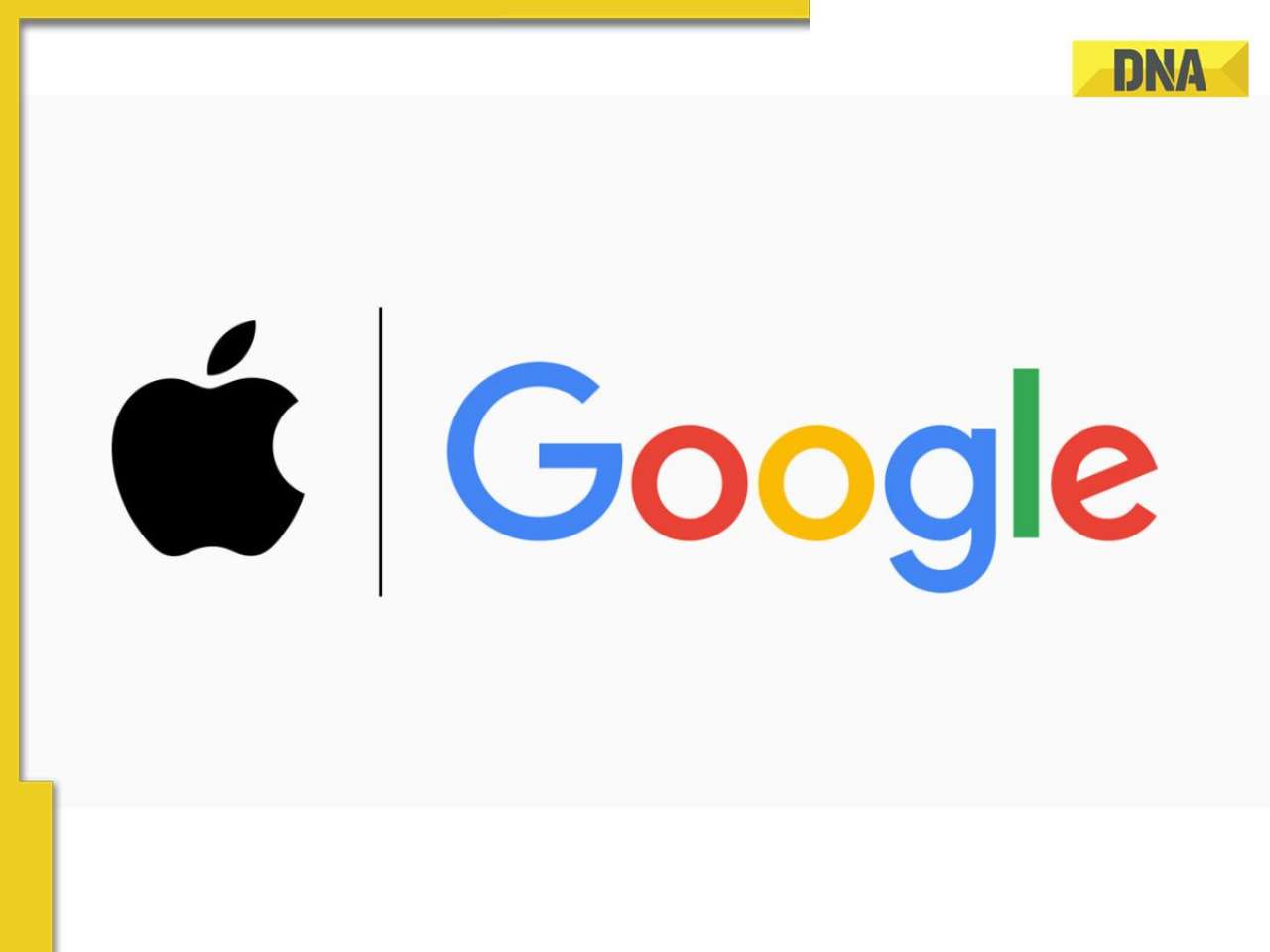In early 2006, economist Nouriel Roubini broke rank from the prevailing consensus opinion and blew the whistle on the US housing bubble and held out grim warnings of a US ‘recession’.
Nouriel Roubini believes the markets are still in denial
HONG KONG: In early 2006, economist Nouriel Roubini broke rank from the prevailing consensus opinion and blew the whistle on the US housing bubble and held out grim warnings of a US ‘recession’.
That contrarian bearish outlook has been proved spectacularly right two years later, and Roubini, a former White House aide and chairman of the Roubini Global Economics Monitor, is justifiably credited with having first ‘called’ the sub-prime crisis.
“It was pretty obvious to me then that a housing bubble was building up and would soon burst,” Roubini said in response to questions from DNA Money in Hong Kong on Thursday. “I’m not sure why the others didn’t see it... With a bubble, there’s always wishful thinking, and people believe it will go on forever.”
Today, the consensus opinion grudgingly concedes that the US economy is tottering on the brink of a recession, but comforts itself with the hope that it will be “short and shallow”. It draws solace from US GDP figures for the first quarter of 2008, which recorded 0.6% growth.
But Roubini’s bearish view is no less diminished.
“The worst is ahead of us rather than behind us,” says the author of ‘Bailouts or Bail-ins? Responding to Financial Crises in Emerging Economies, Political Cycles and the Macroeconomy’.
The US housing recession - the worst since the Great Depression — “is nowhere near the bottom, and US home prices will fall for another two or three years.” And, worse, he notes, it’s effect has spread to the rest of the economy.
But the markets are still in denial, says Roubini. “Until March 2008, the (US) markets were reacting negatively, but since then there’s been a bit of a rally. I call this a bear market sucker’s rally, born of the hope that the US Federal Reserve Board’s policy of monetary easing will prevent a recession or at least make it a shallow one.”
But when people realise that the real economy is contracting, there will, he warns, be “more severe downturns in the equity market”.
In Roubini’s estimation, the US recession will last 12 to 18 months - and it will have a contagion effect in Europe and in Asia as well.
“If the US recession were short and shallow, the slowdown in Asia may have been modest. But conditional on a severe US recession, we will see an economic contraction in Japan, and a recession in some parts of Europe... And if most of the advanced economies are in recession or growing weakly, the negative effect on Asia - in terms of trade and financial consequences - will be severe,” he says. There will be a “significant slowdown of growth - more than the markets are pricing in this part of the world.”
Beneath the US first-quarter GDP figure - of a 0.6% growth - “the details are ugly and in fact confirm that the US is in recession,” says Roubini.
That’s because inventories of unsold goods added an artificial 0.8% to growth.
“If that’s taken away, the actual aggregate demand - the actual measure of growth of true demand - fell in the quarter to minus 0.2%. And the build-up of inventories means the fall in GDP in the second quarter will be larger than otherwise as firms will have to reduce that large inventory of unsold goods via a further reduction in production and employment…”
Roubini believes that the Fed, which called a pause to its policy of monetary easing, may have to lower interest rates further.
“The chances of that are actually very high. The market actually expects the Fed to start raising rates by the end of the year, but in my reckoning, the Fed’s pause will be very short. The chances are they’re going to cut rates yet again.”
But grim though Roubini’s outlook is, he does not foresee a period of protracted economic stagnation similar to Japan’s experience of the 1990s.
“Japan waited almost two years after its asset bubble collapsed to ease monetary policy and provide a fiscal stimulus, whereas in the US both steps came early.”
![submenu-img]() House of the Dragon season 2 trailer: Rhaenyra wages an unwinnable war against Aegon, Dance of the Dragons begins
House of the Dragon season 2 trailer: Rhaenyra wages an unwinnable war against Aegon, Dance of the Dragons begins![submenu-img]() Panchayat season 3 trailer: Jitendra Kumar returns as sachiv, Neena, Raghubir get embroiled in new political tussle
Panchayat season 3 trailer: Jitendra Kumar returns as sachiv, Neena, Raghubir get embroiled in new political tussle![submenu-img]() Apple partners up with Google against unwanted tracker, users will be alerted if…
Apple partners up with Google against unwanted tracker, users will be alerted if…![submenu-img]() Meet actress whose debut film was superhit, got married at peak of career, was left heartbroken, quit acting due to..
Meet actress whose debut film was superhit, got married at peak of career, was left heartbroken, quit acting due to..![submenu-img]() Who is the real owner of Delhi's Connaught Place and who collects rent from here?
Who is the real owner of Delhi's Connaught Place and who collects rent from here?![submenu-img]() Meet man who is 47, aspires to crack UPSC, has taken 73 Prelims, 43 Mains, Vikas Divyakirti is his...
Meet man who is 47, aspires to crack UPSC, has taken 73 Prelims, 43 Mains, Vikas Divyakirti is his...![submenu-img]() IIT graduate gets job with Rs 100 crore salary package, fired within a year, he is now working as…
IIT graduate gets job with Rs 100 crore salary package, fired within a year, he is now working as…![submenu-img]() Goa Board SSC Result 2024: GBSHSE Class 10 results to be out today; check time, direct link here
Goa Board SSC Result 2024: GBSHSE Class 10 results to be out today; check time, direct link here![submenu-img]() CUET-UG 2024 scheduled for tomorrow postponed for Delhi centres; check new exam date here
CUET-UG 2024 scheduled for tomorrow postponed for Delhi centres; check new exam date here![submenu-img]() Meet man who lost eyesight at 8, bagged record-breaking job package at Microsoft, not from IIT, NIT, VIT, his salary is…
Meet man who lost eyesight at 8, bagged record-breaking job package at Microsoft, not from IIT, NIT, VIT, his salary is…![submenu-img]() DNA Verified: Is CAA an anti-Muslim law? Centre terms news report as 'misleading'
DNA Verified: Is CAA an anti-Muslim law? Centre terms news report as 'misleading'![submenu-img]() DNA Verified: Lok Sabha Elections 2024 to be held on April 19? Know truth behind viral message
DNA Verified: Lok Sabha Elections 2024 to be held on April 19? Know truth behind viral message![submenu-img]() DNA Verified: Modi govt giving students free laptops under 'One Student One Laptop' scheme? Know truth here
DNA Verified: Modi govt giving students free laptops under 'One Student One Laptop' scheme? Know truth here![submenu-img]() DNA Verified: Shah Rukh Khan denies reports of his role in release of India's naval officers from Qatar
DNA Verified: Shah Rukh Khan denies reports of his role in release of India's naval officers from Qatar![submenu-img]() DNA Verified: Is govt providing Rs 1.6 lakh benefit to girls under PM Ladli Laxmi Yojana? Know truth
DNA Verified: Is govt providing Rs 1.6 lakh benefit to girls under PM Ladli Laxmi Yojana? Know truth![submenu-img]() Ananya Panday stuns in unseen bikini pictures in first post amid breakup reports, fans call it 'Aditya Roy Kapur's loss'
Ananya Panday stuns in unseen bikini pictures in first post amid breakup reports, fans call it 'Aditya Roy Kapur's loss'![submenu-img]() Remember Harsh Lunia? Just Mohabbat child star, here's how former actor looks now, his wife is Bollywood's popular...
Remember Harsh Lunia? Just Mohabbat child star, here's how former actor looks now, his wife is Bollywood's popular...![submenu-img]() Mother's Day 2024: Bollywood supermoms who balance motherhood, acting, and run multi-crore businesses
Mother's Day 2024: Bollywood supermoms who balance motherhood, acting, and run multi-crore businesses![submenu-img]() Rocky Aur Rani's Golu aka Anjali Anand shocks fans with drastic weight loss without gym, says fitness secret is...
Rocky Aur Rani's Golu aka Anjali Anand shocks fans with drastic weight loss without gym, says fitness secret is...![submenu-img]() In pics: Ram Charan gets mobbed by fans during his visit to Pithapuram for ‘indirect campaign’ for uncle Pawan Kalyan
In pics: Ram Charan gets mobbed by fans during his visit to Pithapuram for ‘indirect campaign’ for uncle Pawan Kalyan![submenu-img]() Haryana Political Crisis: Will 3 independent MLAs support withdrawal impact the present Nayab Saini led-BJP government?
Haryana Political Crisis: Will 3 independent MLAs support withdrawal impact the present Nayab Saini led-BJP government?![submenu-img]() DNA Explainer: Why Harvey Weinstein's rape conviction was overturned, will beleaguered Hollywood mogul get out of jail?
DNA Explainer: Why Harvey Weinstein's rape conviction was overturned, will beleaguered Hollywood mogul get out of jail?![submenu-img]() What is inheritance tax?
What is inheritance tax?![submenu-img]() DNA Explainer: What is cloud seeding which is blamed for wreaking havoc in Dubai?
DNA Explainer: What is cloud seeding which is blamed for wreaking havoc in Dubai?![submenu-img]() DNA Explainer: What is Israel's Arrow-3 defence system used to intercept Iran's missile attack?
DNA Explainer: What is Israel's Arrow-3 defence system used to intercept Iran's missile attack?![submenu-img]() House of the Dragon season 2 trailer: Rhaenyra wages an unwinnable war against Aegon, Dance of the Dragons begins
House of the Dragon season 2 trailer: Rhaenyra wages an unwinnable war against Aegon, Dance of the Dragons begins![submenu-img]() Panchayat season 3 trailer: Jitendra Kumar returns as sachiv, Neena, Raghubir get embroiled in new political tussle
Panchayat season 3 trailer: Jitendra Kumar returns as sachiv, Neena, Raghubir get embroiled in new political tussle![submenu-img]() Meet actress whose debut film was superhit, got married at peak of career, was left heartbroken, quit acting due to..
Meet actress whose debut film was superhit, got married at peak of career, was left heartbroken, quit acting due to..![submenu-img]() 'Ek actress 9 log saath leke...': Farah Khan criticises entourage culture in Bollywood
'Ek actress 9 log saath leke...': Farah Khan criticises entourage culture in Bollywood![submenu-img]() Bollywood’s 1st multi-starrer had 8 stars, makers were told not to cast Kapoors; not Sholay, Nagin, Shaan, Jaani Dushman
Bollywood’s 1st multi-starrer had 8 stars, makers were told not to cast Kapoors; not Sholay, Nagin, Shaan, Jaani Dushman![submenu-img]() Who is the real owner of Delhi's Connaught Place and who collects rent from here?
Who is the real owner of Delhi's Connaught Place and who collects rent from here?![submenu-img]() Viral video: Chinese artist's flaming 'stairway to heaven' stuns internet, watch
Viral video: Chinese artist's flaming 'stairway to heaven' stuns internet, watch![submenu-img]() Video: White House plays 'Sare Jahan Se Achha Hindustan Hamara" at AANHPI heritage month celebration
Video: White House plays 'Sare Jahan Se Achha Hindustan Hamara" at AANHPI heritage month celebration![submenu-img]() Viral video: Bear rides motorcycle sidecar in Russia, internet is stunned
Viral video: Bear rides motorcycle sidecar in Russia, internet is stunned![submenu-img]() Driver caught on camera running over female toll plaza staff on Delhi-Meerut expressway, watch video
Driver caught on camera running over female toll plaza staff on Delhi-Meerut expressway, watch video






















































)
)
)
)
)
)